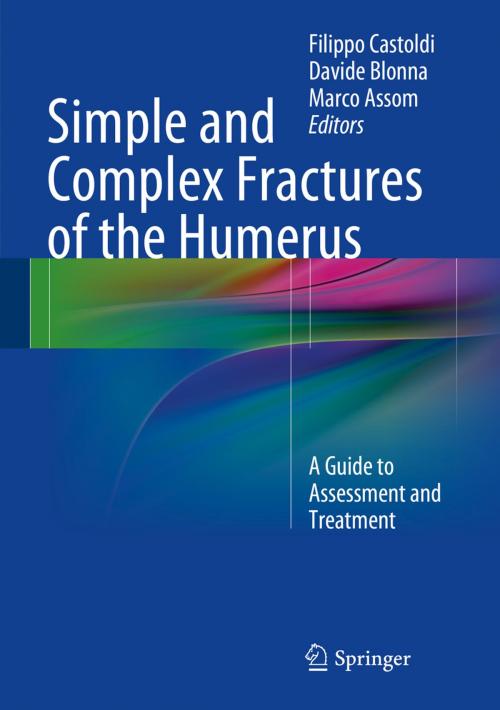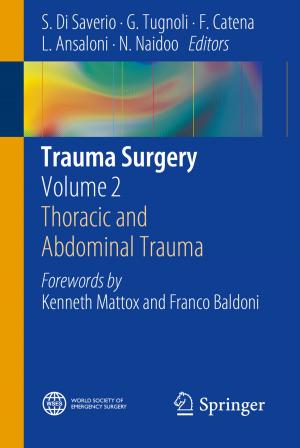Simple and Complex Fractures of the Humerus
A Guide to Assessment and Treatment
Nonfiction, Health & Well Being, Medical, Specialties, Sports Medicine, Orthopedics| Author: | ISBN: | 9788847053076 | |
| Publisher: | Springer Milan | Publication: | September 15, 2014 |
| Imprint: | Springer | Language: | English |
| Author: | |
| ISBN: | 9788847053076 |
| Publisher: | Springer Milan |
| Publication: | September 15, 2014 |
| Imprint: | Springer |
| Language: | English |
The treatment of humeral fractures is a complex issue and the source of considerable controversy. In the case of fractures of the proximal humerus, early range of motion is the main aim of treatment. If a fracture modifies the anatomy or function of the glenohumeral and scapulothoracic joints, the surgeon must adhere meticulously to treatment principles in order to ensure a satisfactory outcome. Humeral shaft fractures are frequent, accounting for 1% to 3% of all fractures in adults; while excellent functional results have been reported with nonoperative management, open reduction and internal fixation is preferred in specific clinical settings. In contrast, intra-articular fractures of the distal humerus are frequently complex and full functional recovery is difficult to achieve.
This volume clearly explains the concepts that are central to an understanding of humeral fractures from the proximal to the distal tip. Indications for different forms of treatment, including nonsurgical, are presented in detail, and all of the commonly used fixation techniques are described with the help of high-quality illustrations. Further important aspects such as complications, rehabilitation, and treatment of sequelae are also fully considered. This book will be an invaluable and comprehensive aid for all surgeons who treat humeral fractures.
The treatment of humeral fractures is a complex issue and the source of considerable controversy. In the case of fractures of the proximal humerus, early range of motion is the main aim of treatment. If a fracture modifies the anatomy or function of the glenohumeral and scapulothoracic joints, the surgeon must adhere meticulously to treatment principles in order to ensure a satisfactory outcome. Humeral shaft fractures are frequent, accounting for 1% to 3% of all fractures in adults; while excellent functional results have been reported with nonoperative management, open reduction and internal fixation is preferred in specific clinical settings. In contrast, intra-articular fractures of the distal humerus are frequently complex and full functional recovery is difficult to achieve.
This volume clearly explains the concepts that are central to an understanding of humeral fractures from the proximal to the distal tip. Indications for different forms of treatment, including nonsurgical, are presented in detail, and all of the commonly used fixation techniques are described with the help of high-quality illustrations. Further important aspects such as complications, rehabilitation, and treatment of sequelae are also fully considered. This book will be an invaluable and comprehensive aid for all surgeons who treat humeral fractures.















